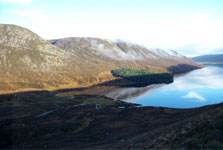The Water Framework Directive will provide a new approach to the regulation of the water environment. However, that is not to say that it is presently unregulated. Rather, there are a plethora of regulatory controls driven by European, UK and Scottish legislation. The regulatory regimes are complex and exhaustive, however, the three main regulatory mechanisms that impact on Deeside with respect to the water environment are as follows:
Urban Wastewater Treatment Directive/Scottish Regulations visit website
This major piece of legislation has driven hundreds of millions of pounds worth of water industry investment in improving sewage treatment and the sewerage network. It specifies that improved treatment measures need to be in place for larger population centres by the year 2000 and for smaller conurbations by December 2005. Presently, Scottish water is spending approximately £11m on improving the treatment in small towns in Deeside, including Tarland, where water quality issues are also being addressed through the 3 Dee Vision project.
Habitats and Birds Directive visit website
The Dee is a Special Area of Conservation, owing to its status as an internationally important site for salmon, otter and freshwater pearl mussels. This European Directive requires member states to accord such habitats special status, and this affords a further level of protection from environmental harm.
Control of Pollution Act 1974 visit website
This has been the primary tool for SEPA to regulate the water environment. All dischargers to the environment are required to apply to SEPA for a consent to discharge. SEPA will assess the potential impact on the water body of the discharge (e.g., public wastewater system, private septic tank, industrial discharge, farm drainage) and set consent conditions to limit the discharge of material that will harm the environment. This will be subsumed by new water use licences with the implementation of the Water Framework Directive, through the forthcoming Controlled Activities Regulations.
SEPA – Scotland’s Water Environment Regulator
SEPA are responsible for regulating all discharges to the environment and will be the lead authority responsible for Water Framework Directive. SEPA’s website contains considerable information on regulatory regimes and its own policy towards regulating the water environment.




